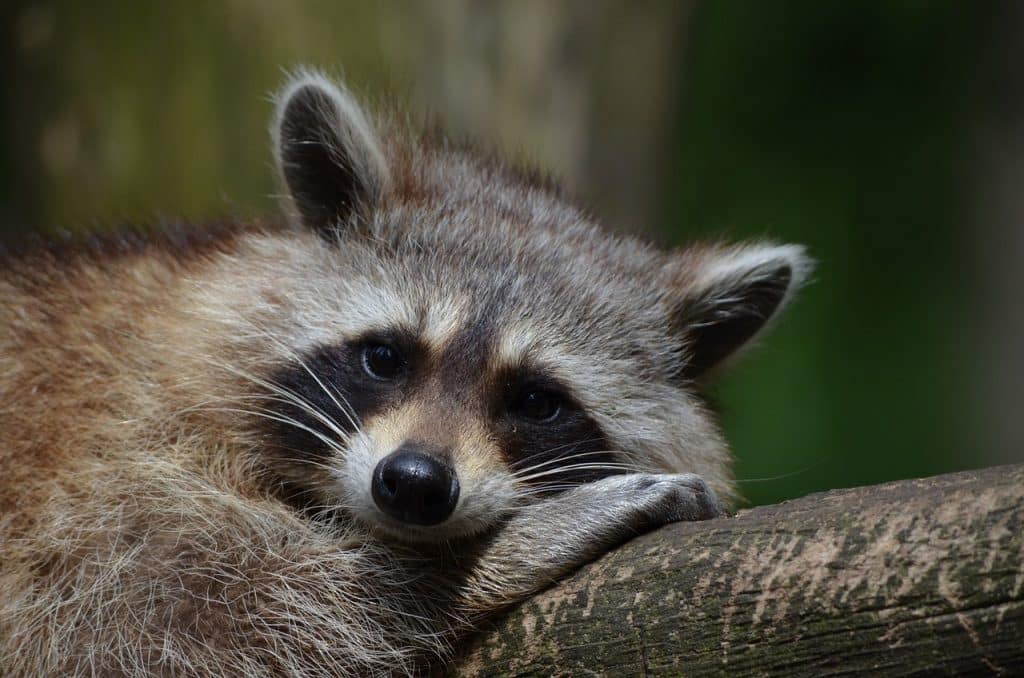
Trash Pandas are also affectionately known as Raccoons. They are well-known for their distinctive striped tails. They are adorable and well-known for their hilarious antics such as stealing dog food and immersing the kibble in water before they eat. Although they’re cute, raccoons can be destructive. A single-family of raccoons could destroy an entire room or attic, which can prove costly.
These sneaky creatures are always looking for tasty food and are everywhere. Many people love raccoons, despite their ability to destroy rooms and endless pursuit of snacks. They eat almost anything in order to survive and have the diet of true scavengers. Their diets are more healthy when they are kept in captivity. Let’s look at what raccoons consume in the wild as well as their diets as pets.
What kind of animals are raccoons?
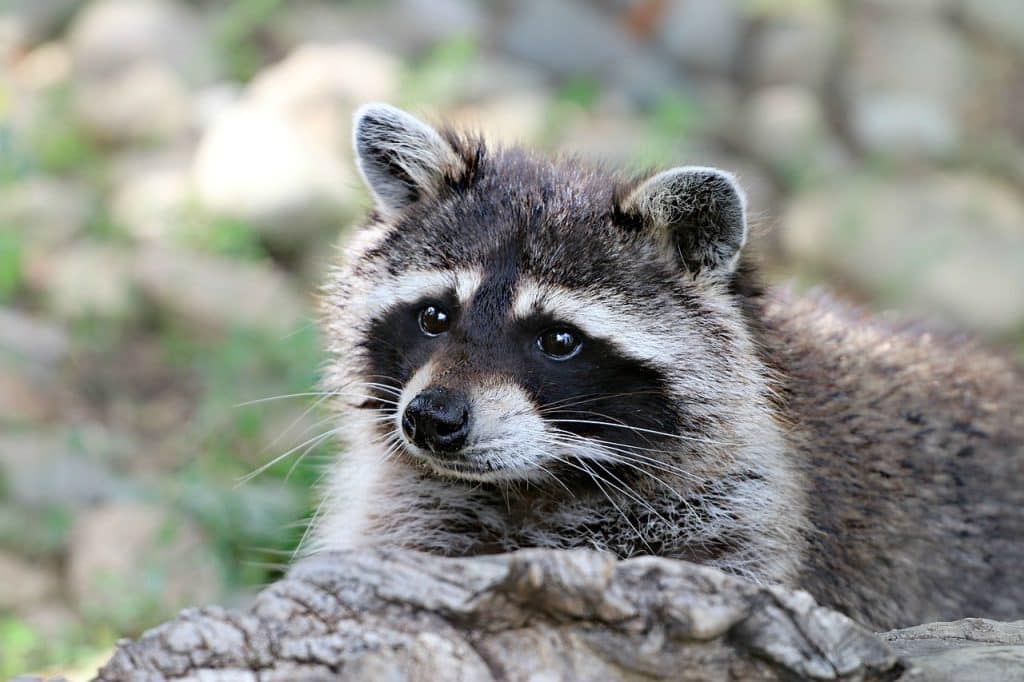
Although raccoons have been well documented, it is difficult to know what they are or what animal family they are. The nocturnal mammal raccoons are native to the Americas. They belong to the Procyonid Family, which includes kinkajous and ringtails. There are 22 different subspecies, each with a unique size and appearance.
The fluffy coat of raccoons is a mixture of whiteish gray and dark charcoal grey. They have an underlayer to protect against cold weather, a long tail, which is often striped, as well as a black stripe running across their eyes. Sharp claws and teeth make it difficult to take a bite out of a raccoon. While they live a short life span in the wild (around 1-4 years), they can live up to 15 years in captivity.
They use their senses of touch to feel food and also use their front paws to search for it. Raccoons will work tirelessly until they find what they are looking for. They don’t mind trashcans and dumpsters. In fact, they often use them to find food for their survival.
What kind of diet do wild raccoons eat?
Natural omnivores and raccoons eat a variety of fruits, vegetables, and animal proteins. Raccoons can be found in the wild searching for food at night. However, they will often be seen looking for food during the day. They are true omnivores and will eat almost anything, invertebrates or plant material.
Near rivers and lakes, raccoons can also enjoy amphibians and fish as well as bird eggs. Raccoons can only eat certain foods that are toxic, but they will eat any food they find. Raccoons will eat small birds and small animals if they catch them. However, they prefer to hunt for easier food.
Raccoons are famous for their habit of dousing. Their dousing habit of soaking their food in rivers and lakes gives them the appearance of cleaning it. Many theories exist as to why they do it. Captive raccoons do the same thing with their food. It’s just one of many habits these bandit-looking creatures have been known to engage in.
Why do Racoons love Garbage?
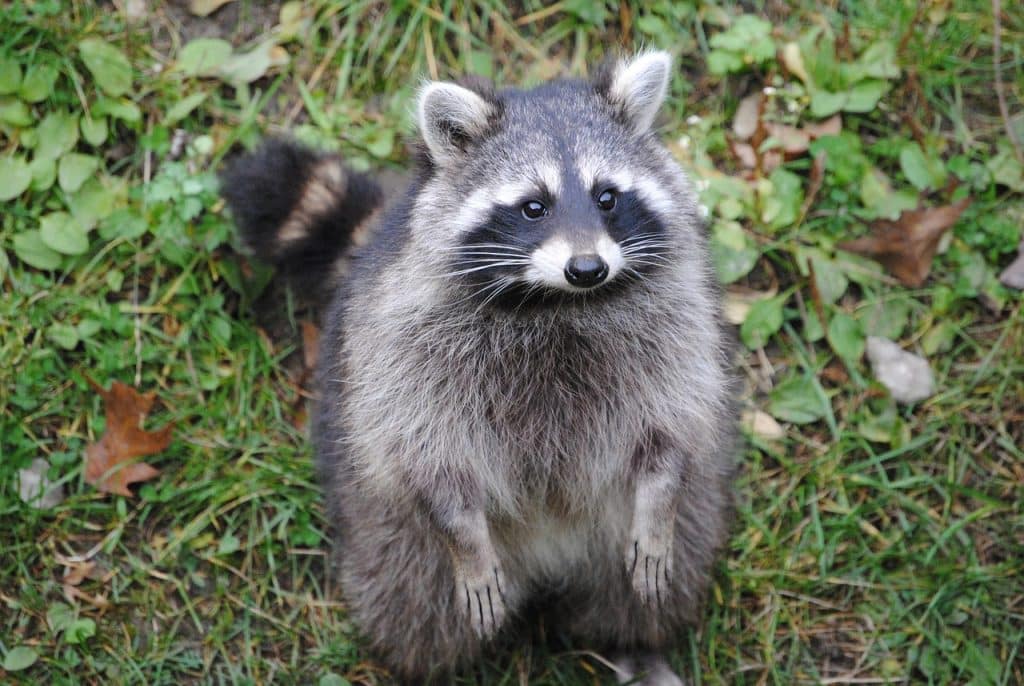
Raccoons are well known for their love of garbage. Many videos show raccoons stealing garbage cans and getting stuck in large city dumpsters. They live up to their trash panda nickname. Although it may seem funny, raccoons do this for survival.
Raccoons are able to find food in the trash cans, gardens, and garages around their home due to the massive destruction of their natural habitat. Their survival depends on their ability to scavenge and they don’t usually get enough nutrients. This will reduce their lifespans.
Raccoons are often fed by people, which can bring them back and encourage them to scavenge. It is not a good idea to feed wild animals, but animals such as raccoons or deer will continue returning for more. It is best to appreciate wild animals from afar, even though it may be tempting.
What do Raccoons eat in captivity?
Raccoons are able to survive in captivity despite their extraordinary ability to scavenge. This is because they don’t need to rely on scavenging. Raccoons in captivity eat a balanced diet of fresh fruits, vegetables, fish, meat, eggs, insects, and dog food.
Raccoons require fresh water to bathe in their food. This can lead to them getting messy very quickly. Raccoons won’t eat food soaked in dirty water. Therefore, it is important to change the water source frequently. Dousing is an instinctual ritual that should not be limited. They can douse almost anything, even dry items like dog food.
Captive raccoons receive two meals per day: one in the morning, and one at night. Raccoons kept in captivity at zoos or sanctuaries receive their food according to their individual needs. Consult an exotic animal vet if you need to make recommendations about the diet for your pet raccoon.
What is safe to feed a raccoon?
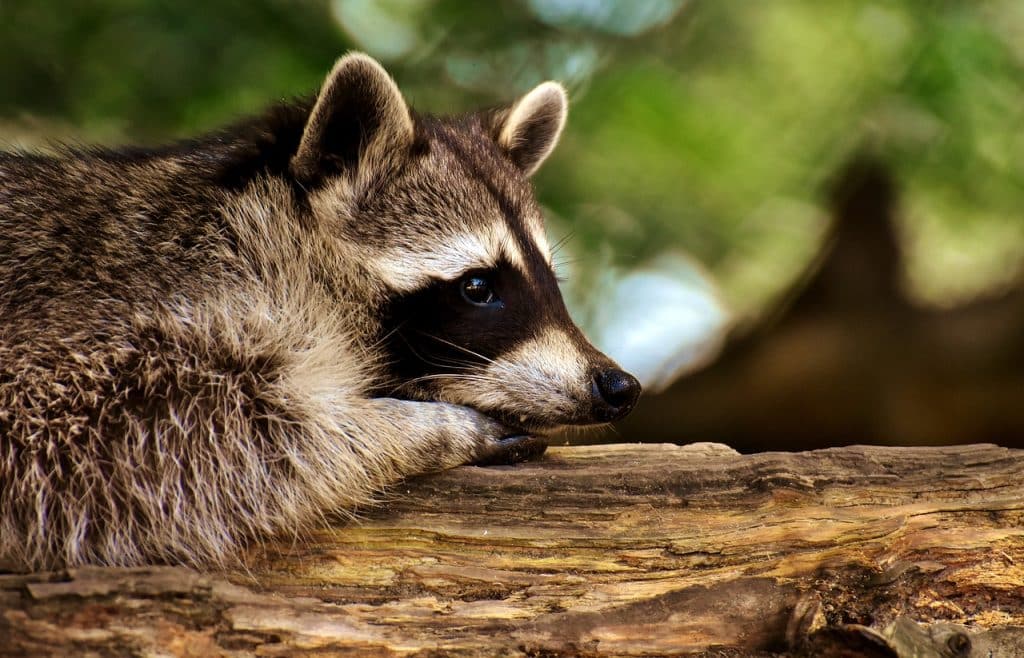
Although raccoons are trashcan scavengers they don’t have to eat all foods. Like dogs and cats garlic, onions, chocolate, and garlic are all toxic for raccoons. Raisins may also make them sick. However, fresh grapes will not cause illness. Nuts and anything high in fats can lead to weight gain or other problems. It is important to only give them small amounts.
Are Racoons good pets?
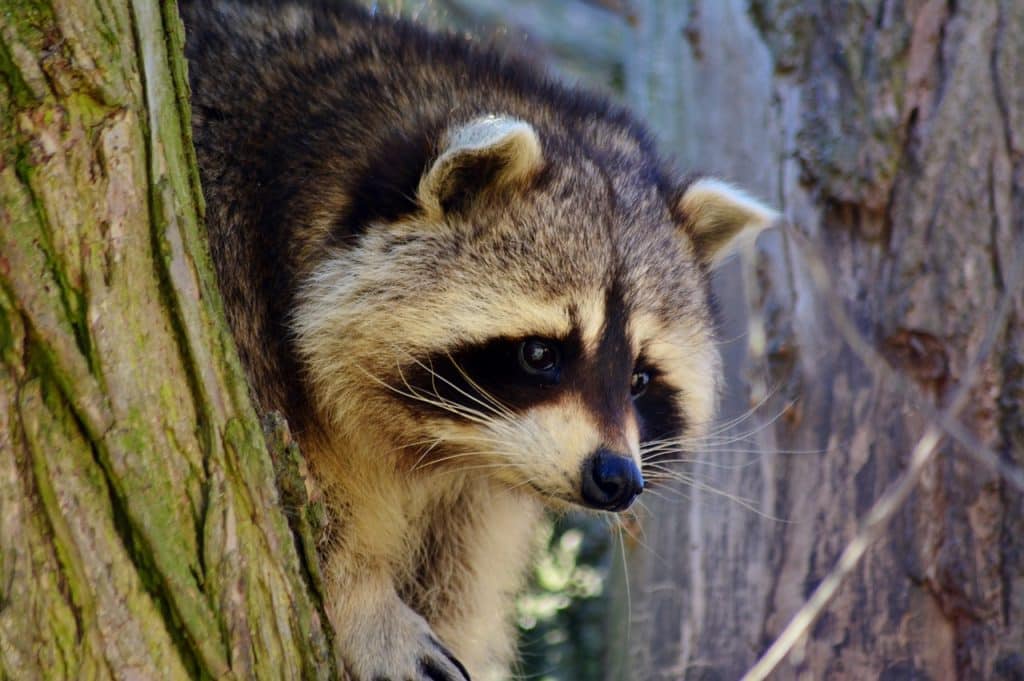
Many animals are great pets, even exotics that have special living needs. Although raccoons can be a great “pet” for an experienced exotic animal owner, they are not recommended for the average household. Raccoons are sharp-toothed and can bite if threatened or frustrated.
Raccoons can be gentler and are easier to house when they are young and small. They make great pets. Many raccoons end up abandoned in the wild or are surrendered to the sanctuary as adults. Adult raccoons are more aggressive and can cause moderate damage by biting or scratching.
It is important to learn how to care for a raccoon if you are considering getting one. Raccoons can be wild animals with complicated needs. This is why they are rarely suitable for most households. Raccoons are not recommended for families with young children as they can bite and become aggressive quickly.
Is it legal for Racoons to own property in the United States of America?
Yes. Raccoons can be owned, but it depends on where you live. While some states have relaxed exotic pet laws, others have very strict guidelines. All states that have banned pets from raccoons include Arizona, Colorado, and Idaho as well as Louisiana, Maryland, Maryland, Massachusetts, and Kentucky.
You must follow all laws and guidelines in your state if you want to keep a raccoon for your pet. You should never bring wild raccoons into your home. Instead, find a reliable breeder. Wild raccoons have a temperament that is different from captive and bred raccoons. It’s important to find reputable breeders. Call a sanctuary if you find a baby raccoon in the wild.
Last Thoughts
Raccoons are an omnivore, which means they eat whatever is available to them. Captive raccoons also get a variety of food including plants, chicken, and dry dog kibble. Captive raccoons are clever animals that will do whatever it takes to survive. Captive raccoons can be just as mischievous so make sure you are prepared to have a high-maintenance pet in your home. They are expensive to feed and will require a lot of attention.
Although they are adorable, you should not feed wild animals like raccoons. They will return for more and often bring along other animals for food. They will be more inclined to share their food with other people. To stop raccoons from eating out of your trash cans, make sure you secure them.
What should you feed your pet raccoon?
They are capable of eating poultry, fish, insects, vegetables, and fruits. Young raccoons will graze and eat as much as they want, but as they get older, their meals should be limited. Complete dog foods are an excellent source of protein for raccoons.
Is it permissible to feed wild raccoons?
Assist in keeping wildlife wild and healthy. Wildlife Services advises against feeding ducks, geese, gulls, raccoons, deer, squirrels, or coyotes. Feeding wildlife near human populations and in parks is one way to help reduce wildlife conflicts with people.
Can you make friends with a raccoon?
A tamed raccoon will quickly begin approaching, following, or even aggressively harassing strangers, who will understandably mistake this behavior for symptoms of illness. Befriending a wild animal is also bad for you and your family.
Raccoons eat what kind of vegetables?
They develop a taste for fruits like apples, peaches, and pears, especially in the fall, but they also enjoy a variety of vegetables like sweet corn, potatoes, and peas.
Can you handle wild raccoons?
Even if a raccoon is harmless, it is not a good idea to touch it. Raccoons, along with bats, are the most frequently associated with reported rabies cases in the United States. A single bite is all that is required.
Are raccoons good pets?
Raccoons, while friendly, are never truly docile and can easily become skittish and aggressive. People who have kept raccoons as pets, either legally or illegally, have reported being attacked, even after they thought they had tamed their pet raccoon.
Can a raccoon fall in love with a human?
Raccoons will form bonds with humans, especially if they are raised in captivity from a young age. Many of them can be quite cuddly or playful at times. They are, however, generally quick to bite—even their favorite people—when something irritates or scares them.
Are pet raccoons rabies carriers?
Although any warm-blooded animal can carry or contract rabies, raccoons, skunks, bats, foxes, and coyotes are the primary carriers in North America. Wildlife now accounts for more than 90% of all reported rabies cases, thanks to an increase in pet immunizations.
Do raccoons have a distinct odor.?
Raccoons have a very strong odor in their urine, which can sometimes be detected from inside the house, not to mention their feces, which is also very foul and strong smelling. They rip insulation, matting it down and causing energy loss. They wreak havoc on attic fans, roof vents, gable vents, and other structures.
In the wild, what does a raccoon eat?
Diet and Habits Raccoons are omnivores, which means they eat both plants and animals. Fruits, berries, nuts, fish, frogs, mussels, crayfish, insects, turtles, mice, rabbits, muskrats, and bird eggs are all examples.